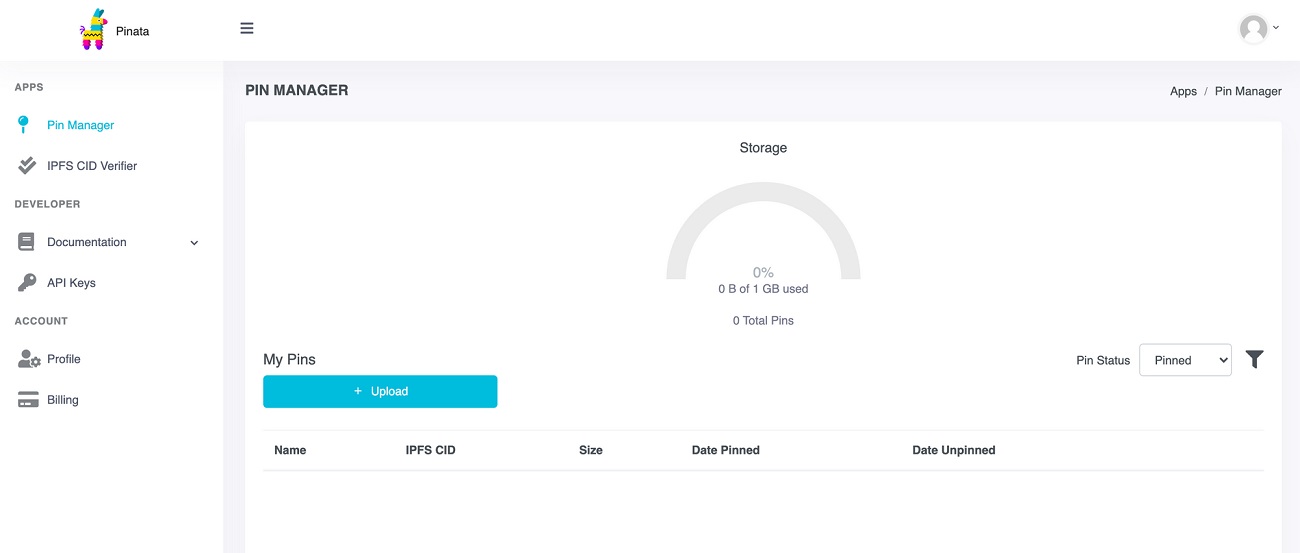On This Page: [hide]
We at HTHGUIDE have discussed IPFS and why hosting files there is beneficial. In the related article Create a Website on IPFS Using Pinata we have told you on how to efficiently and easily host website files on IPFS through the Pinata service and thus, run a functioning website this way.

Let us take a closer look into the IPFS network and how to host files on it.
What Is IPFS and Its Network
We have already written about the IPFS protocol and how it was created to replace HTTP in the long run. Beyond a secure protocol, IPFS or the InterPlanetary File System is also a peering network, which is decentralized and secure.
The IPFS Network makes it possible to efficiently distribute high volumes of data without duplication with up to 60 % of bandwidth savings from video media. Enabling these savings is the reason that IPFS gets pieces with peer-to-peer approach from various nodes in an instant, instead of the slow and outdated HTTP which is downloading files from one server at a time.
That makes IPFS efficient and preferable as a network worth being supported.
How Filecoin Aids the IPFS Network?
IPFS has a cryptocurrency called Filecoin standing behind it. One of the purposes of Filecoin is to support the IPFS network to keep running and storing data when users pay out FIL tokens. This is how paying users are incentivized to help out the longevity of the network.
Filecoin is like Bitcoin, but miners amass hard drives instead of hashing PCs. Blockchains use a wasteful Proof-of-Work consensus, while Filecoin uses a novel Proof-of-Replication function instead.
That creates a useful and valuable storage service as a byproduct of the mining process. Miners are incentivized proportionally, in that the more they store, the more filecoin they will make. That grows the IPFS network and keeps it alive and independent from the backbone of the Internet.
How IPFS Functions
Straight to the explanation, adding files to IPFS will split them to tinier chunks, cryptographically hashes them, and gives each file a unique fingerprint named a content identifier (CID). This CID acts as a permanent record of your file and will remain unchanged.
If other nodes look up your file, they ask peer nodes who the original owner is of said files. That is done by the content referenced with the file’s CID.
When nodes view or download your file, they cache a copy of it, thus becoming another content holder, successfully multiplying the file in the IPFS network, creating a chain. That remains true till the moment their cache is purged.
Nodes pin content to have it forever, or discard content it has not used for some time to save space. Essentially, each node in the network stores only content which is intriguing, and some additional indexing information that aids in figuring out what is stored by each node.
IPFS gives a different cryptographic hash to each file, even if it is the same file uploaded again, resulting in the creation of a new CID for each of the iterations of said file.
So, files stored on IPFS are resistant to being changed and have some censorship, meaning that tampering with file will not overwrite the original. Also, common chunks across files can be re-used minimizing storage costs.
Furthermore, IPFS will find the latest version of your file using the IPNS decentralized naming system, and DNSLink can be used to map CIDs to human-readable DNS names for ease of access and finding CIDs fast without the need to know them by heart.
Files on The IPFS Network
There are multiple ways to host files on the IPFS Network but they all require a bit of work from you. Most ways people want to ensure their files are run forever is by doing everything themselves, manually.
Another example is hosting an IPFS node on a RaspberryPi with a HDD connected to the Web or to take a virtual machine on Google Drive and install it with the same idea to host files.
Either way, if you want a free and easy way that does not require you to be so tech-savvy, use the following method provided below.
How To Start Hosting Files on IPFS
To begin, go to the official website of Pinata and complete a registration. It is free. Then you should upload the files you want by using the Upload Directory option and navigating to the directory containing the files of your choosing.
Abstain from hosting illegal and nasty content as it will surely get removed. Note that each link within your files should be relative links.
You will be using the Pin Manager:
Give a custom name for the pin and choose the option to preserve the folder name. Once the upload completes, you will now have a Content Identifier (CID) or an IPFS Hash.
If you click on the custom name, your files (or folder) will launch in the Piñata IPFS gateway. Your data files are now pinned to the IPFS network for an indefinite period of time.
Note that this is the process of pinning. Although your files are pinned, that does not require IPFS to make the files available forever, but just make sure that the notion of them does not vanish completely from the network.
Also note, that you will have to rely on other people for being interested in the file and distribute it long enough, so you can access it as well. Otherwise the file will be there, but after a while if you are the only one wanting access to it, you will not be able to download and see it. Have backups.
What Is Blockchain Domain
1. Simplify cryptocurrency addresses with NFT domains
– Attach your BTC, ETH, LTC and 275+ other cryptocurrencies to your NFT domain
2. Login with your domain
– A single, easy-to-remember username on the decentralised web
3. Own your domain, for life
– No renewal fees, ever
Conclusion on IPFS Network
In the end, IPFS brings new life to the Internet and data storage, creating opportunities for bandwidth savings, reliability and security. With fast development it offers promising future prospect of how we use files and the Internet.
Although it successfully incentivizes more and more clients to use it now, it is not bulletproof as any other blockchain project. Amassing space is good, but it would be better if more thought was put into it, more experts to be involved, and more of the energy on storage made green.
We shall see how the IPFS fares, but for now, bandwidth savings alone are good enough to recommend it as an innovative and easily accessible service.








